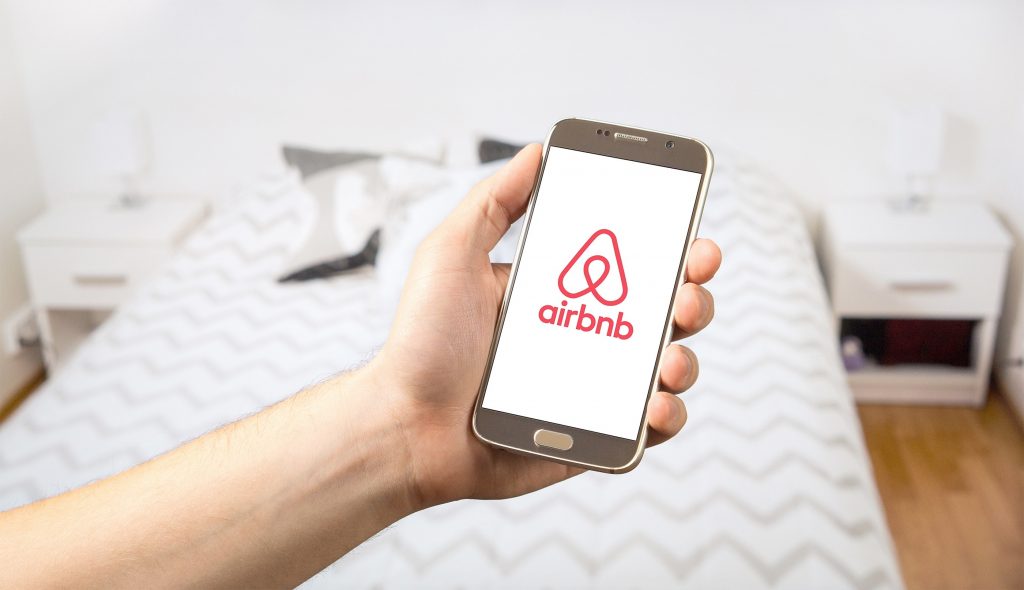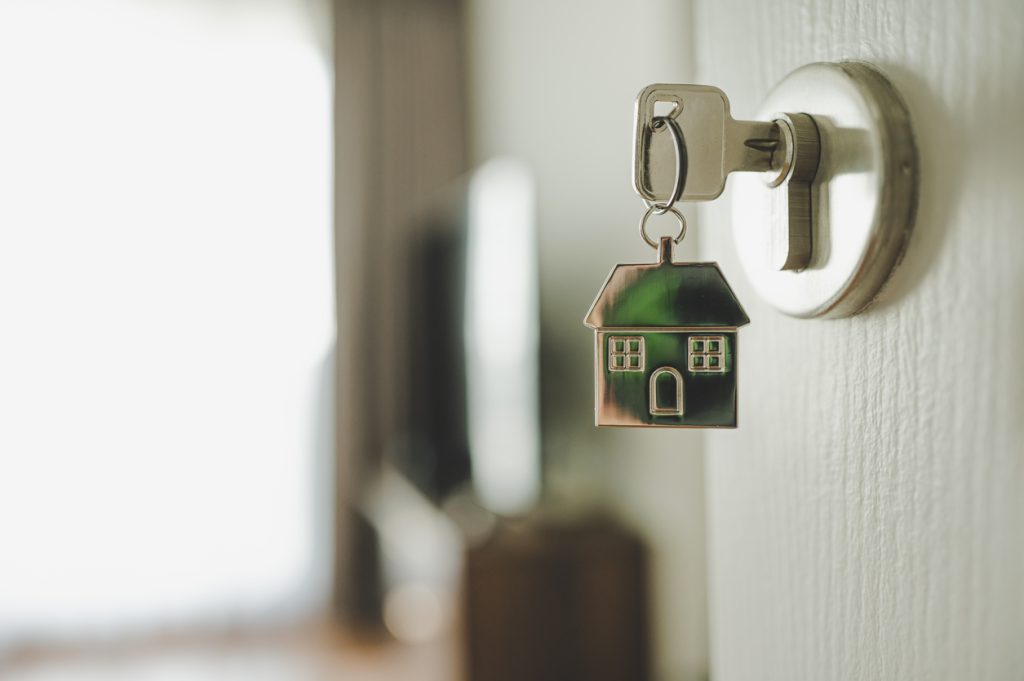Can I Airbnb a rented property?
The answer is yes and no. You can potentially rent out a property you lease on Airbnb, but it depends on several factors (see below). In this article we answer all the questions for laws about Airbnbs and other short term rentals in the U.S.
I rent an apartment or house. Can I legally put it on AirBnB?
You will need to check your lease agreement provided by your landlord or letting agency. Whilst technically it is possible, they could also be restrictions from you doing this. There are 5 key areas you should consider when thinking about placing your rented property on Airbnb.
- Lease Agreement: You need to review your rental or lease agreement. Many leases explicitly prohibit subletting or short-term rentals like Airbnb without the landlord's permission. Violating this clause could result in eviction or other legal action.
- Landlord’s Permission: Even if your lease allows subletting, you typically need to get the landlord's explicit permission to list the property on Airbnb.
- Local Laws: In some cities or states, short-term rentals are subject to strict regulations. Some municipalities require permits or prohibit short-term rentals entirely unless the property is owner-occupied.
- HOA Rules: If the property is in a condo or community with a homeowners association (HOA), you’ll need to ensure the HOA rules permit short-term rentals like Airbnb.
- Insurance: Regular renter’s insurance may not cover damages or liabilities that arise from hosting on Airbnb. You should verify coverage or consider purchasing additional insurance for protection.
Make sure to cover all legal and regulatory bases before proceeding to avoid issues with your landlord, local authorities, or insurance providers
Renting a Unit
If you're renting a unit, it's likely that your lease includes a clause regarding "subletting." Many leases specify that you can sublet only with your landlord's permission, although they typically won't permit you to use the space for AirBnB. However, if your lease doesn't mention subletting or "assignment" of the unit, and it doesn't conflict with any applicable laws, you may have the legal right to list it on AirBnB.
What is a 'short term rental' or 'vacation rental'?
Short-term rental, often abbreviated as STR, or short-term lease, typically refers to the rental of a unit, such as an apartment or house, for a limited duration. The exact duration can differ based on local regulations or governing entities, such as a Homeowners Association, but it is generally considered to be less than 30 or 31 days, although it may extend up to 3 or even 6 months in certain cases. Rentals that exceed the defined short-term period are classified as standard or long-term rentals. Individuals frequently opt for short-term rentals for purposes such as vacations or business travel. Prominent platforms for listing short-term rentals include AirBnB and VRBO/HomeAway, with many people colloquially referring to these accommodations as "an Airbnb rental."
Can I rent my property out on AirBnB?
Yes, you can generally rent out your property on Airbnb, but there are some important factors to consider:
- Local Laws and Regulations: Many cities and municipalities have specific rules governing short-term rentals. Some require permits, impose restrictions on how many days you can rent, or may outright prohibit short-term rentals altogether. Check your local zoning and housing laws.
- Homeowners Association (HOA) Rules: If your property is part of a community governed by an HOA, they may have specific rules regarding short-term rentals. Some HOAs forbid Airbnb listings, while others impose strict conditions.
- Insurance: Standard homeowner’s insurance may not cover short-term rental activities. Airbnb offers its own Host Guarantee, but you may want additional coverage tailored to short-term rentals to protect against liability or property damage.
- Mortgage or Condo Association Rules: If you have a mortgage, some lenders may have restrictions on using your home for business purposes like Airbnb. Similarly, condo associations may limit short-term rentals in shared buildings.
- Tax Implications: Renting your property on Airbnb can have tax implications, as rental income is taxable. In many jurisdictions, Airbnb collects occupancy taxes on behalf of hosts, but you may still be responsible for reporting and paying taxes on your earnings.
City Rules
Be sure to do your research about your city or state as each city and state may have rules and different rules applied for renting out your property. The U.S. states with the highest number of Airbnb listings are Florida, California, and Texas.
Numerous cities impose restrictions or outright prohibitions on short-term rentals. Among those that permit such rentals, the majority mandate the registration of the property and the collection of a "hotel tax" (Airbnb and VRBO have established agreements with various cities and local departments to facilitate this process automatically). Certain cities limit short-term rentals to "owner-occupied" residences, thereby prohibiting "whole-home" listings. Additionally, some jurisdictions permit short-term rentals exclusively in designated areas, such as commercial districts, while excluding residential neighborhoods.
We've looked at three states to see how they compare.
Florida State-Level Regulations
Renting out your property on Airbnb in Florida is subject to several state and local regulations. Here are key considerations:
- Licensing Requirements: Florida law requires hosts renting their property for short-term stays (less than 30 days) to obtain a vacation rental license from the Florida Department of Business and Professional Regulation (DBPR). Depending on the type of property (single-family home, apartment, condo), different licenses may apply.
- Sales and Tourist Taxes: Florida requires hosts to collect sales tax and tourist development tax on short-term rentals. Airbnb typically handles the collection of these taxes on behalf of hosts in most counties.

California State-Level Regulations
California has a set of state-level and local regulations for renting your property on Airbnb. Here are the most important state-level rules to keep in mind:
1. Transient Occupancy Tax (TOT) - California requires hosts to collect a transient occupancy tax for short-term rentals, usually for stays of less than 30 days. This tax rate varies by city and county, but Airbnb typically collects and remits these taxes on behalf of hosts in many locations.
2. Business License - Many cities in California, including Los Angeles, San Francisco, and San Diego, require short-term rental hosts to obtain a business license or short-term rental permit. Failure to do so can result in fines or penalties.
3. Short-Term Rental Registration - Certain California cities mandate registration with local authorities. For example, San Francisco requires hosts to register with the Office of Short-Term Rentals if the property is rented for fewer than 30 consecutive days.
4. Limitations on Short-Term Rentals - Some California cities impose limits on the number of days a property can be rented on Airbnb. For example, in Los Angeles, hosts can rent out their primary residence for up to 120 days per year without additional permits. San Francisco restricts non-hosted rentals (i.e., when the host is not present) to a maximum of 90 days per year.
5. Host Requirements - Hosts in California are often required to be permanent residents of the property to list it on Airbnb. In some cities, only primary residences can be rented, and hosts must live there for a significant portion of the year.
6. Homeowners Association (HOA) Rules - Hosts who live in buildings governed by an HOA must comply with HOA rules and restrictions related to short-term rentals. Many HOAs in California prohibit or heavily regulate short-term rentals.
7. Insurance Requirements - Hosts must ensure their property is adequately insured. While Airbnb offers some coverage through their Host Guarantee, it’s advisable to obtain separate insurance that covers short-term rental activities.
8. Health and Safety Requirements - Hosts are required to comply with state health and safety laws, including having smoke alarms, carbon monoxide detectors, and fire extinguishers in the rental property.
9. Rent Control and Tenant Protection - In cities with rent control (e.g., San Francisco or Los Angeles), tenants may not be allowed to rent their units as short-term rentals. Landlords often have the right to restrict tenants from listing rental properties on Airbnb.
10. Anti-Discrimination Laws - California’s Fair Employment and Housing Act (FEHA) and the federal Fair Housing Act prevent hosts from discriminating against potential guests based on race, gender, religion, disability, or other protected classes.
Each city in California may have additional specific regulations. Hosts should verify the local rules for their area before listing their property on Airbnb

Texas State-Level Regulations
In Texas, there are important state and local regulations to follow when renting your property on Airbnb. Here’s an overview of the main state-level rules and considerations:
1. Hotel Occupancy Tax (HOT)
Texas imposes a state hotel occupancy tax on short-term rentals, which applies to rentals of 30 days or less. The state tax rate is 6% of the rental amount. In addition to the state tax, many cities and counties in Texas charge their own local occupancy taxes, which can vary significantly.
Airbnb typically collects and remits these taxes on behalf of hosts in many Texas jurisdictions, but you should confirm whether this applies to your area.
2. Business License and Registration
Although Texas itself does not have a statewide requirement for short-term rental business licenses, local municipalities (like Austin, Houston, and Dallas) often require hosts to obtain a short-term rental license or permit. For instance, in Austin, hosts must register with the city, and the registration is valid for one year.
3. Zoning Laws and Rental Restrictions
Many Texas cities regulate where and how short-term rentals can operate. For example, Austin has restrictions on the number of unhosted short-term rentals (where the owner is not present) allowed in certain residential zones.
Zoning laws vary by city, so hosts must ensure they are in compliance with local regulations, especially in larger cities like Dallas, Houston, and San Antonio.
4. Insurance Requirements
While Airbnb provides a Host Protection Insurance program, it’s important to review whether your regular homeowners or rental insurance covers short-term rental activity. You may need additional coverage to protect against liability or damages.
5. Health and Safety Standards
Texas does not have specific statewide safety regulations for short-term rentals, but hosts are generally required to comply with local safety standards, including having smoke detectors, fire extinguishers, and carbon monoxide detectors in their properties.
6. Homeowners Association (HOA) Rules
If your property is governed by an HOA, their rules could restrict or prohibit short-term rentals. Many HOAs in Texas, particularly in suburban and residential areas, place limits on or ban Airbnb and other short-term rental activity.
7. Noise and Nuisance Ordinances
Many Texas cities have noise ordinances and nuisance laws that apply to short-term rentals. Hosts must ensure that their guests comply with local rules to avoid fines or complaints from neighbors.
8. Anti-Discrimination Laws
Like the rest of the U.S., Texas hosts are subject to federal and state anti-discrimination laws, which prohibit discrimination against guests based on race, gender, religion, disability, and other protected characteristics.
9. Renting Apartments or Leased Properties
If you are renting out a property you do not own, such as an apartment, you must review your lease agreement and get permission from your landlord before listing the property on Airbnb. Many leases prohibit subletting or short-term rentals without explicit consent.
10. Enforcement and Penalties
Cities like Austin and Dallas have actively enforced short-term rental regulations, issuing fines and penalties for non-compliance. Hosts should be aware of local enforcement policies and stay updated on changes to short-term rental laws.
Before listing a property on Airbnb in Texas, it’s important to check both state and local regulations to ensure compliance and avoid legal issues.

















